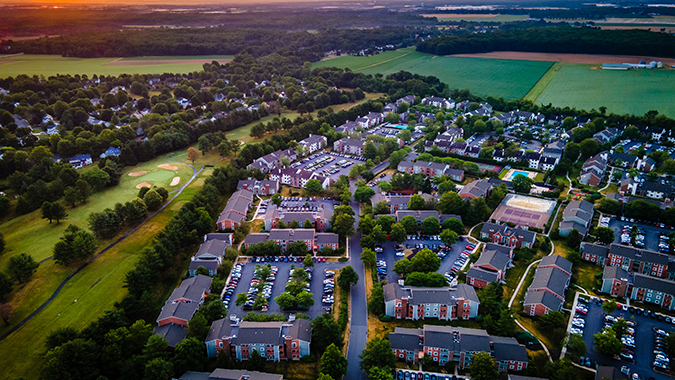High taxes, government spending and overregulation are driving wealth out of New Jersey and forcing millennials to seek jobs and careers elsewhere. As these and other business conditions deteriorate, New Jersey’s ability to recover from recessions has weakened considerably, compromising governments’ ability to fund services and residents’ quality of life.
In short, New Jersey needs to do something fast!
As former Secretary of State Buster Soaries put it, “We don’t have time in New Jersey to wait five years for a project.” Soaries is senior pastor of the First Baptist Church of Lincoln Gardens in Somerset, which hosted the first Opportunity NJ Affordability Summit on Sept. 18.
Michele Siekerka, president and CEO of the New Jersey Business & Industry Association, said the summit spent the morning looking at the problems, but break out into groups in the afternoon to start coming up with solutions.
“You tell us every day that it’s the taxes, the cost of living, the cost of doing business that are driving you out or causing you to contemplate leaving the state of New Jersey,” she said. “That’s why we need all of you here today—all of the great problem-solvers that I’m looking at—to share your great ideas.”
Before looking for solutions, however, the summit’s presenters outlined the problems in stark detail.
Rutgers University professor Jim Hughes said New Jersey has lost the business-friendly posture it had in the late 20th century.
Since 1981, the state has experienced four recessions followed by four economic expansions, he said. In the 80s and 90s, New Jersey’s expansions created an average of 600,000 private sector jobs each, while in the 2000s, New Jersey averaged only 200,000 jobs per expansion.
What happened?
During the expansions of 80s and 90s, “New Jersey clearly stood as the low-cost place of doing business. We were the business-friendly state in the region, and our employment growth really demonstrated that,” Hughes said.
“In the first decade of the 2000s, New Jersey’s business-friendly posture eroded significantly, and we lost our once substantial regional business cost advantage,” he said.
That is especially true when it comes to taxes.
Tom Byrne, chairman of the NJ State Investment Council and managing director of Byrne Asset Management, pointed out that on average New Jersey’s notoriously high property taxes represent 11 percent of household income, which makes the cost of carrying a home in New Jersey 80 percent higher than the national average.
Byrne compared New Jersey with Massachusetts, which in the 80s and 90s was dubbed “Tax-a-chusetts” for its high tax rates. Today, however, Massachusetts’ top income tax rate is 5.1 percent, nearly half New Jersey’s, and its property taxes are lower.
“What I foresee is a gradual decline in our standard of living” if we don’t start solving these problems, Byrne said.
On economic growth, Steve Van Kuiken, senior partner of McKinsey & Company, said New Jersey’s economy is a big challenge. The state’s GDP has been basically flat since 2007; its employment growth has been about half of the U.S. average over the last 10 years; and 16 of the state’s 19 leading industries are growing slower than the U.S. economy. On top of that, New Jersey’s cost of doing business has grown faster than the U.S. average.
Republican Gubernatorial candidate Kim Guadagno told the group that while people can get jobs in New Jersey now, they can no longer afford to live here.
“I’m talking about the No. 1 issue that should be facing politicians in the state today because it’s the No. 1 issue facing people in the state today,” she said. “Property taxes.”
Guadagno’s plan would cap the school portion of a homeowner’s property tax bill to 5 percent of their household income, ensuring no New Jersey family would have to leave because of property taxes.
These presentations were just the starting point, however. Participants will analyze that information and turn it into a white paper for to the two gubernatorial candidates.
“We hope at the end of this session, after we give people a lot of good factual information, that they will go back and come up with very good, strong discussions on the four topics that we have presented to them, come up with potential solutions,” said Tom Bracken, president of the NJ State Chamber of Commerce.
Opportunity NJ, a 501(c)4, is co-chaired by Bracken and Siekerka.



